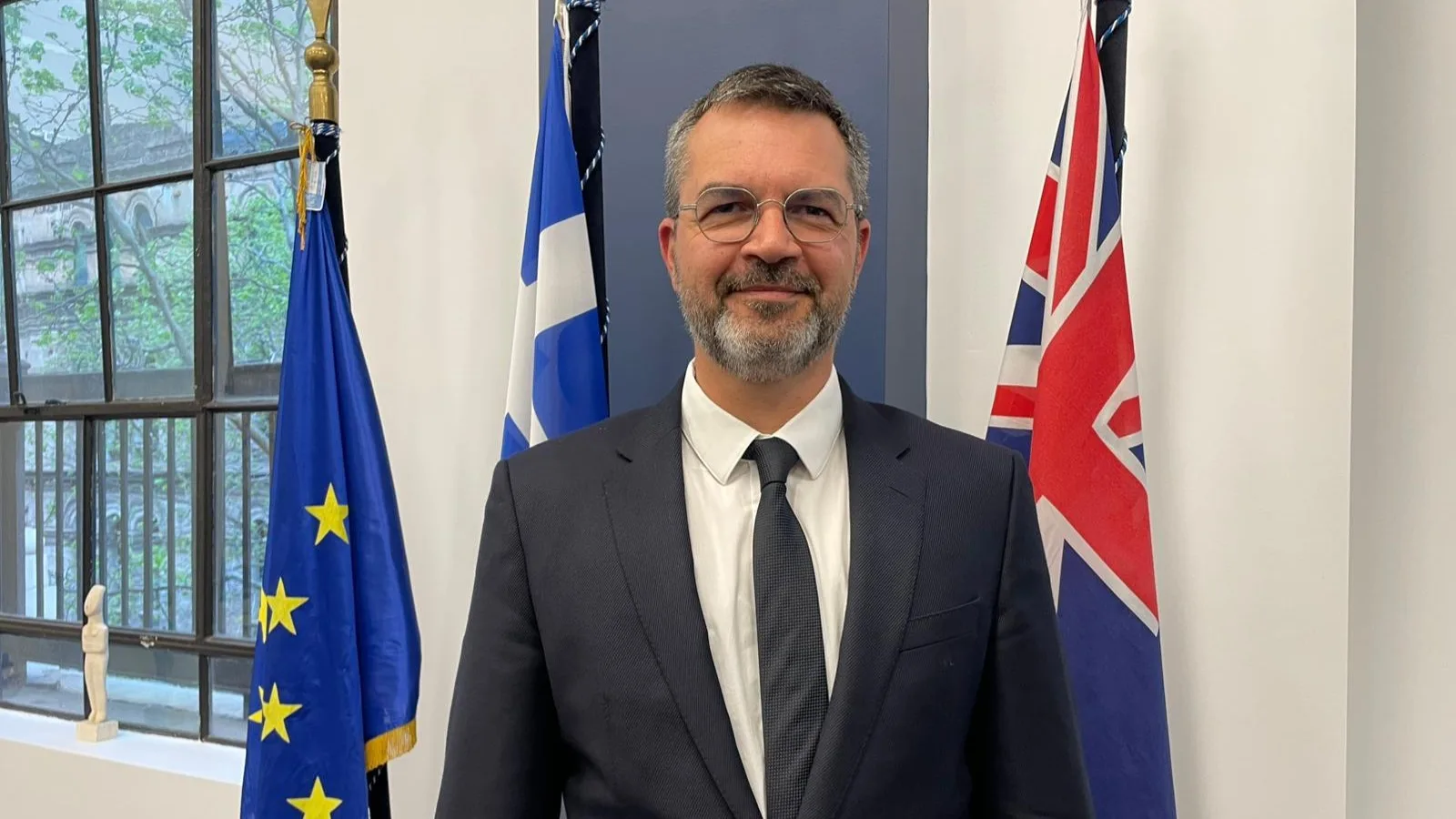When George Skemperis arrived in Sydney in late August to assume his post as Greece’s new Consul General, he brought with him not only a wealth of diplomatic experience but also a deep appreciation for history, culture, and the Greek diaspora’s evolving identity.
“I came here with great expectations, but actually what I met has exceeded my expectations,” Mr Skemperis tells The Greek Herald in his first interview to Greek media in Australia.
“I am really very positively surprised by how vibrant the Greek community is – the progress they have made. They are everywhere: in business, in art, in sciences. Their level of prosperity is really admirable, and I’m very glad I came here to be part of this.”
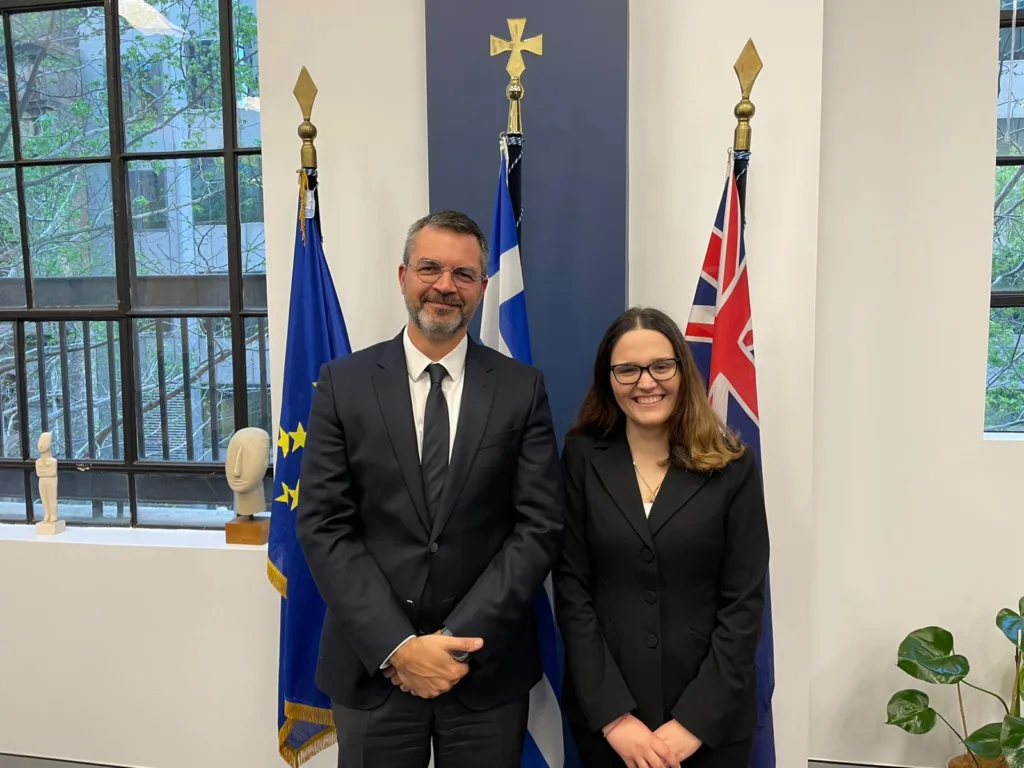
From Ancient History to Global Diplomacy
Mr Skemperis’ path to diplomacy began far from the corridors of embassies and consulates – in a small town in eastern Macedonia called Nigrita.
“It’s mainly an agricultural region,” he recalls. “My dream was to become an archaeologist, so I went to study archaeology in Ioannina, in Epirus. But after graduating and working a couple of months in the field, I realised I wanted a different career.”
That realisation led him across the Atlantic to Syracuse University in the United States, where he completed a master’s in international relations and negotiations.
“When I went there, I realised how globally influential thinkers like Thucydides are – especially in realism, which is more relevant today than ever,” he explains. “Diplomats are generally people that love history, politics, and international relations, because all of these are interlinked. It’s a hard life – high risk, high reward – but you get to know the world as it really is.”
Among his various postings, Nigeria stands out.
“It’s an invaluable experience to live in Africa and Sub-Saharan Africa,” he reflects. “You deal with a society very different from ours in the West. On the other hand, in France I became familiar with the heart of the European way of life and the cornerstone of the West – the universal implementation of fundamental human rights. These two experiences equally shaped me.”
Still, it was his time in the US that proved transformative. “I went there one month before 9/11, and I experienced that event very close to New York. American academia shaped my capacity to do research and raise my own conclusions. They establish a way of thinking – your own way of thinking.”
Strengthening the Greek Australian connection
Now in Sydney, Mr Skemperis is eager to deepen the relationship between Greece and the local community.
“The Greek community in New South Wales is definitely one of the most prominent in Australia,” he says. “But I think there’s great potential. Especially in the economic sector — we need to find ways to make this more beneficial for Greece, but also for them.”
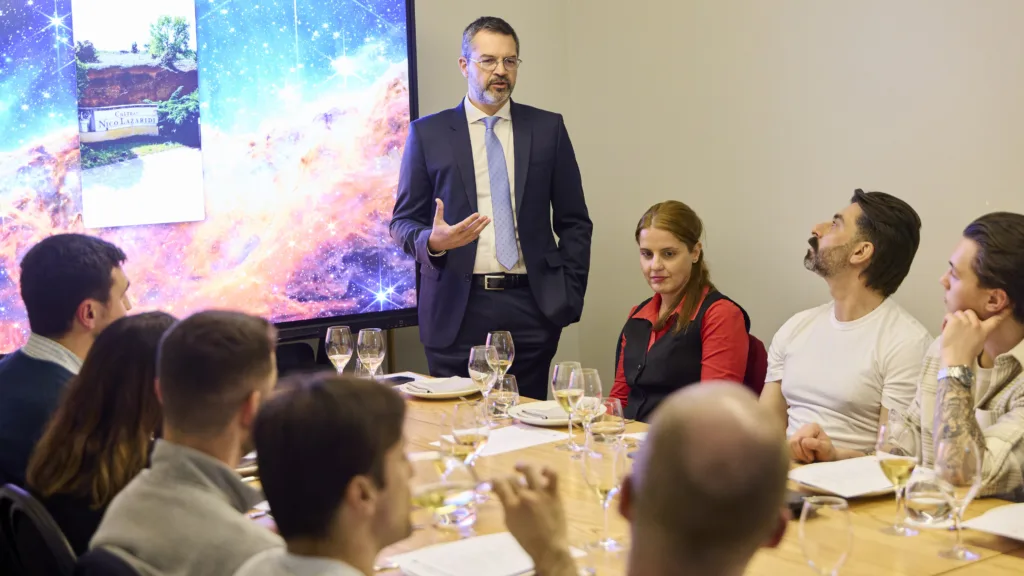
He sees the diaspora’s success as a story worth telling back home.
“We can present to the Greeks in Greece this community — a success story of integration that has maintained its identity and love for the mother country,” he says.
“At the same time, we need to show to the Greeks in Sydney what Greece has become since their parents and grandparents left. Greece keeps evolving, and it takes effort to understand where it’s going.”
For that, he believes, language remains key. “Speaking Greek is not necessarily a prerequisite to feel Greek. But it’s necessary to partake in the cultural evolution of your mother country. Without it, you can’t truly appreciate Greek art, poetry, theatre, or even understand our news and leaders directly.”
Priorities: Service, Culture, and Unity
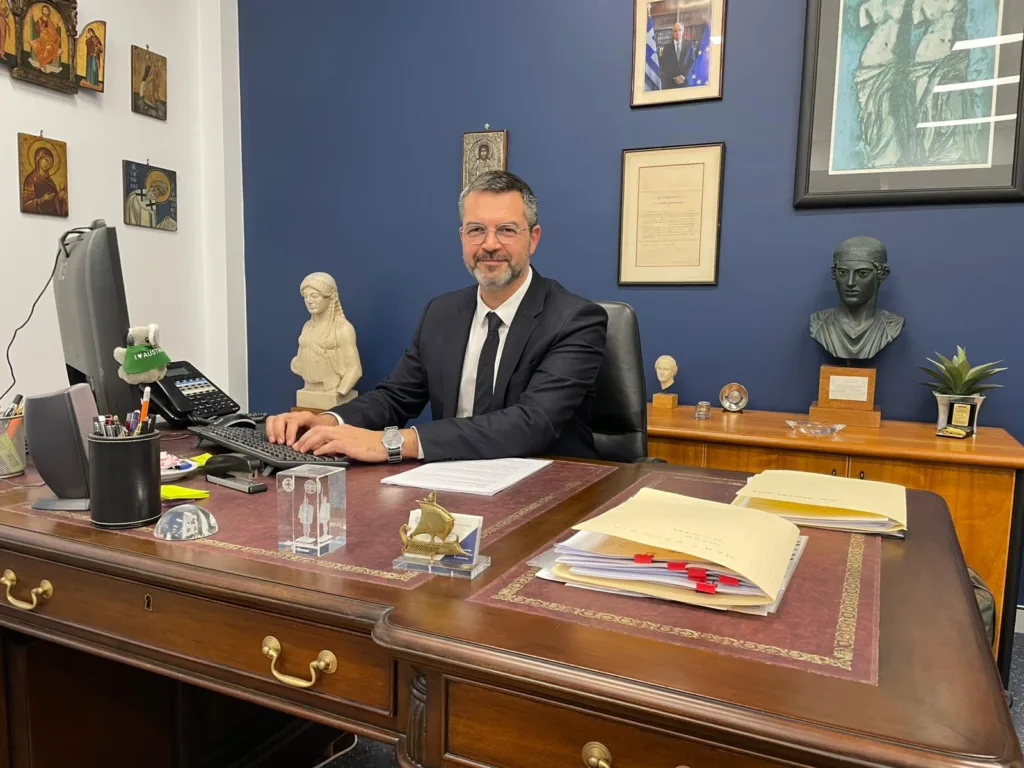
Looking ahead, Mr Skemperis outlines his main goals for his tenure.
“First, I want to preserve and improve the level of services at the Consulate — something my predecessor achieved remarkably,” he says.
“Second, I want to organise cultural events for the Consulate’s centenary in 2026, in cooperation with local organisations. My ambition is to organise events that bring young Greeks closer to Greece, beyond the stereotypes.”
He also places strong emphasis on the Greek language. “We’ll do whatever we can to help maintain or strengthen the presence of Greek at the academic level, but it’s also about families. Parents and grandparents need to speak Greek at home. If two generations don’t speak it, it will be lost.”
He acknowledges, too, the frustrations many face with bureaucracy and consular delays — and offers clarity.
“We welcome criticism; it’s constructive. But many misunderstand the difference between applying for a passport and acquiring citizenship,” he says.
“If someone already has Greek citizenship, they can get a passport in about one and a half months. For other services, appointments are quick — visas, powers of attorney — but registration of life events takes longer, sometimes decades of records must be traced. We ask for understanding, because many families didn’t register life events for 30, 40, even 60 years.”
The Consul General adds that Greece has recognised the need for support. “Athens has realised that we need to strengthen consulates in Australia. We hope that during the next 12 months, working conditions will improve and more staff will arrive.”
Engaging the next generation
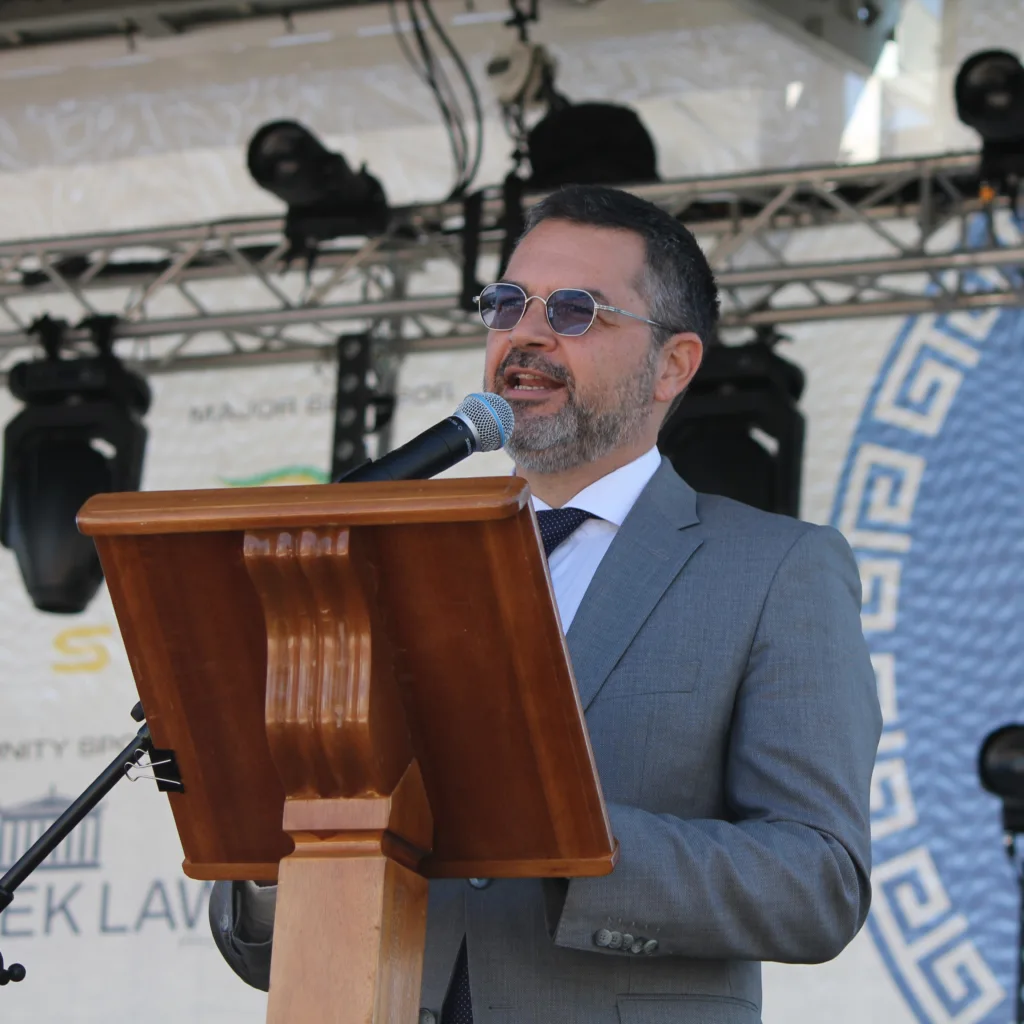
Mr Skemperis is particularly keen to engage younger diaspora members. “Last year, young Greeks from Sydney travelled to Greece through a Ministry of Foreign Affairs youth hosting program, and it was very successful. We’ll try to make this a permanent institution — every year, young people travelling to Greece.”
He adds that he hopes to bring contemporary voices from Greece to Australia. “We want to bring young artists, podcasters, YouTubers — the new types of artists the younger generation identify with. It will be hard, but we’ll try to create that interest.”
Beyond that, he sees one enduring challenge: unity.
“One of the most often met stereotypes about Greeks is our lack of unity,” he says thoughtfully. “Throughout history, we achieved great things when we were united — and great disasters when we weren’t. I want to project this message: that we need to be one. The Greek state today is a state for all Greeks, without discrimination in any way.”
Building economic bridges
Before his Sydney posting, Mr Skemperis directed the Diplomatic Cabinet of Greece’s Deputy Minister for Economic Diplomacy and Extroversion — experience he intends to put to use.
“Economic relations set the tone for all other forms of cooperation,” he explains. “If we want to bring Greece and Australia closer, we need to do it through business, amongst other sectors of cooperation. The Greek Australians can play a huge role as the link between these two countries.”
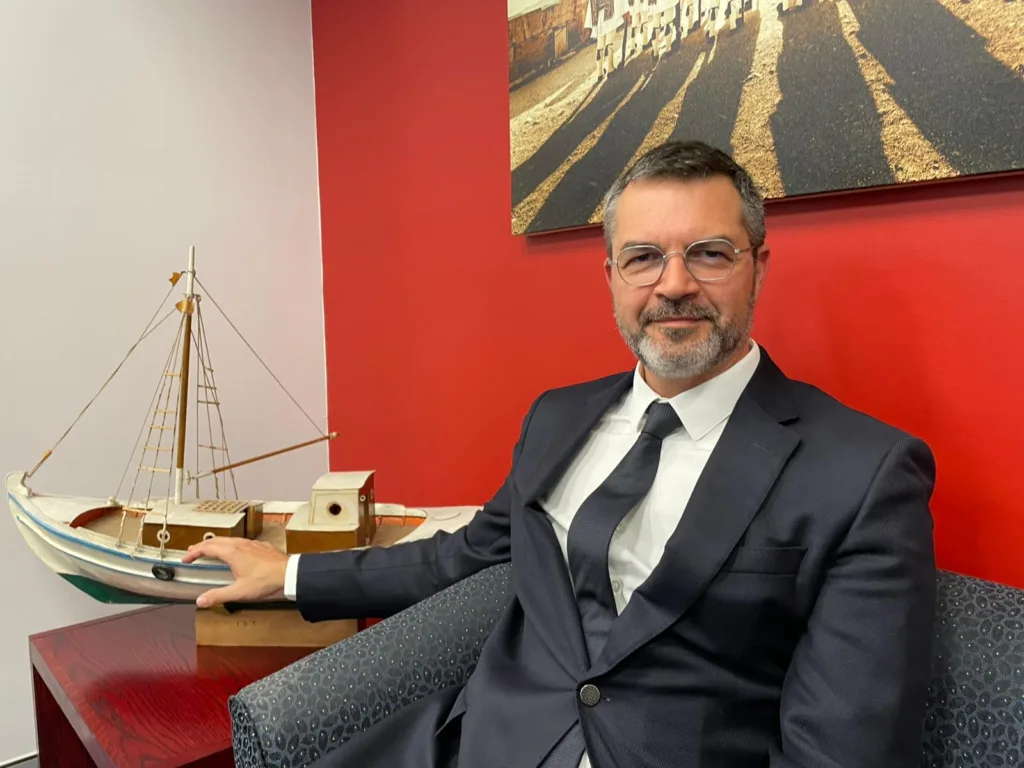
He points to emerging opportunities. “Apart from real estate and tourism, there are many other sectors — renewables, infrastructure. Greece now has political stability, a business-friendly environment, and a stable tax policy. It’s an opportunity for Australians, and especially Greek Australians, to invest.”
He also acknowledges the importance of structural progress. “We need to conclude the Double Taxation Agreement. There has been a restart of interest by both sides. There’s also consideration for establishing a bilateral business council. We want to organise more trade missions and exhibitions from Greece to Australia.”
A century of service — and a shared future
As the Consulate prepares to mark its centenary in 2026, Mr Skemperis views the milestone with reverence.
“It shows the deep roots of Hellenism in Sydney and Australia. We should celebrate the fact that Greeks have been here for more than a century. My vision is a series of events throughout the year — especially next spring — that highlight this enduring bond.”
Asked for a final message to the Greek community of Sydney, he pauses, then smiles. “We are extremely proud of the Greeks that came here, especially for those who came more than a century ago. I want them to know that the Greek state and the Consulate is here for all of them.”
